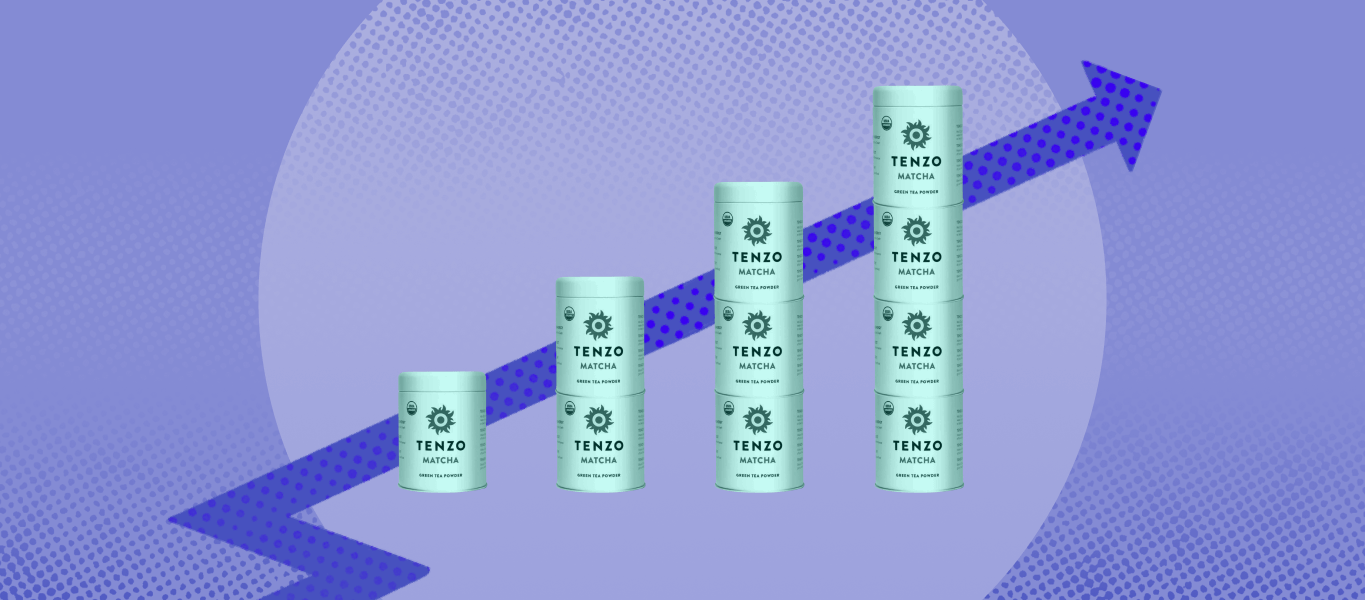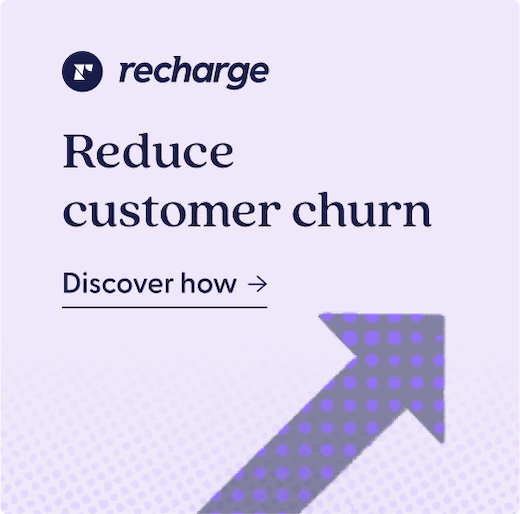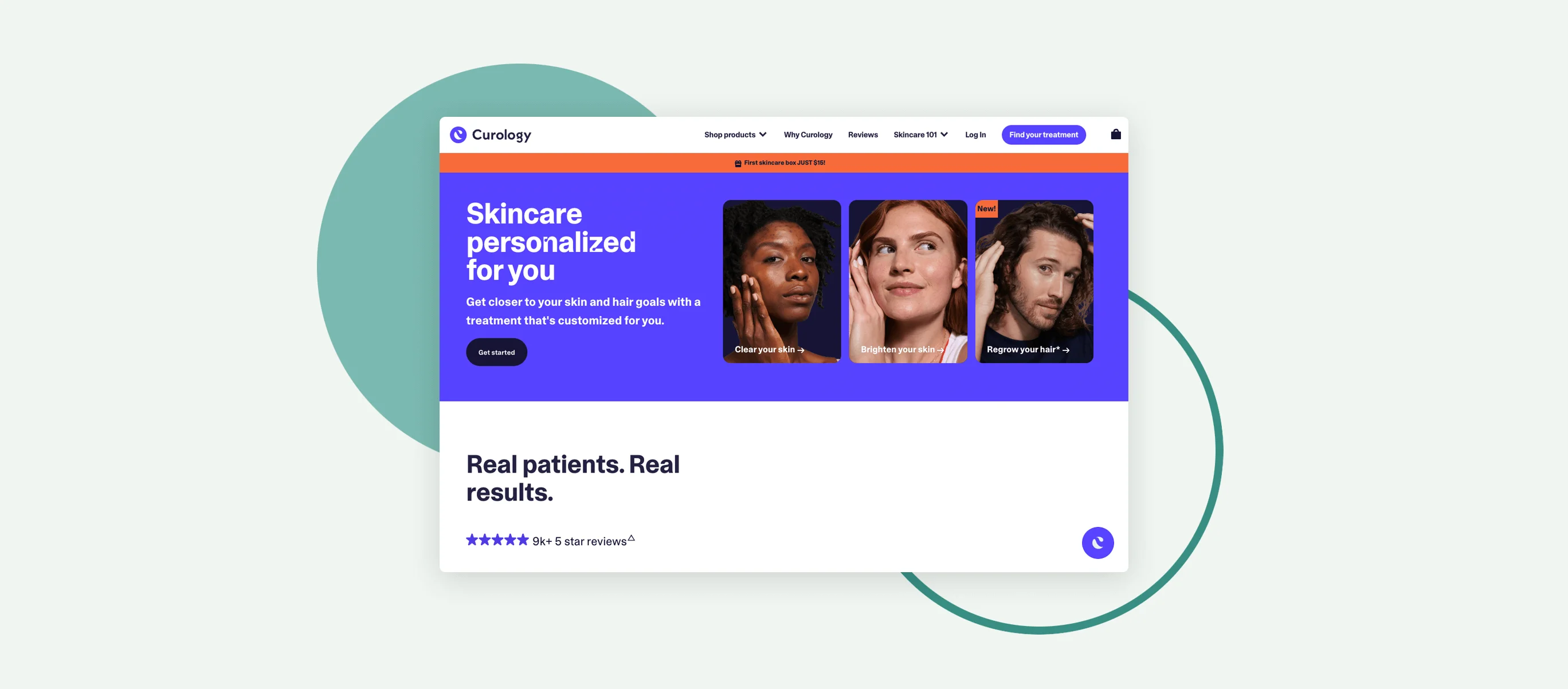There are two kinds of people in the world: those who like numbers, and those who don’t. The founders of Tenzo Tea likely lean toward the first as they continue to master the art of data-driven decision-making in their business.
We sat down with Co-Founder and CEO Steve O’Dell on our Hit Subscribe podcast to chat about how being able to rely on numbers has vastly improved their retention strategy. What’s more, it’s allowed them to invest more in other areas, like paid ads and community building.
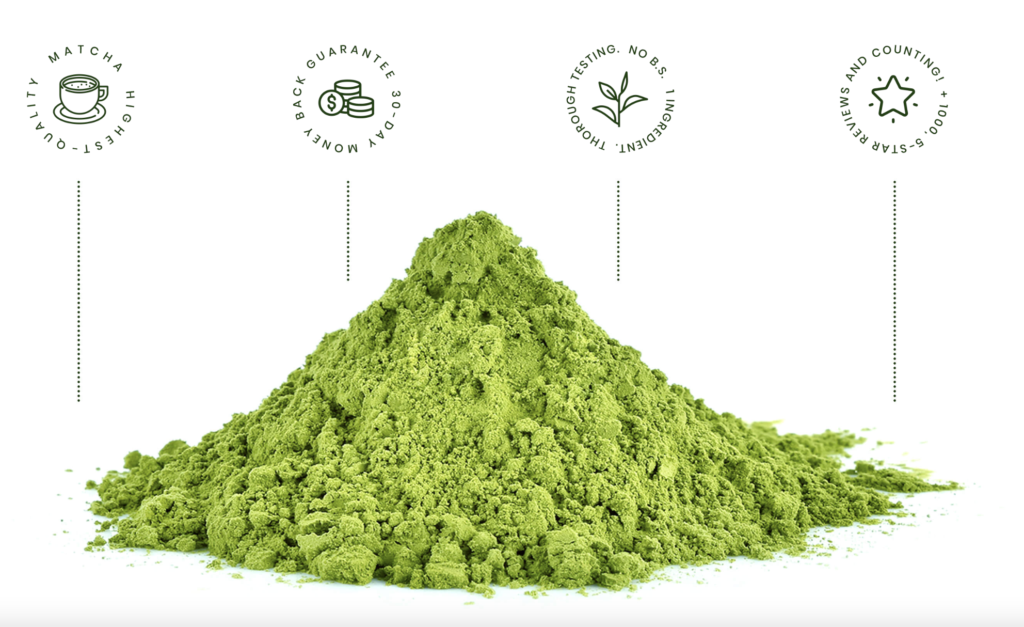
Key takeaways
- Build a custom dashboard for your analytics to funnel into from multiple channels to make it easily accessible.
- Utilize A/B testing to optimize your products and business based on the data.
- Develop and leverage a community among your customers to build trust and generate content.
From farm to cafe: the humble beginnings of Tenzo Tea
Steve began the tale of Tenzo’s origins with a story of drinking five cold brew coffees in one day—not an ideal choice. Like many great stories begin, he did a Google search for healthier alternatives. Enter: matcha.
Though Steve and co-founder Robbie first began their matcha purchases through a private label in Arizona, fate would soon take them to Japan, where they met with over a dozen tea farmers. It ended with a drive all over Japan visiting tea farms, followed by a meeting several months later which kickstarted the destiny of Tenzo Tea.
“This is definitely our destiny, to build the biggest matcha company in the world.“
–Steve O’Dell, Co-Founder and CEO of Tenzo Tea
Going direct-to-consumer & starting with subscriptions
That destiny ended up leading Steve to drop out of UCLA and dive headfirst into this new business endeavor. As somebody who lived in a small apartment and thus frequented cafes to do work, it made sense to get started selling to cafes wholesale. After all, Steve and Robbie were new to the game and weren’t exactly sure what the direct-to-consumer (DTC) movement was all about.
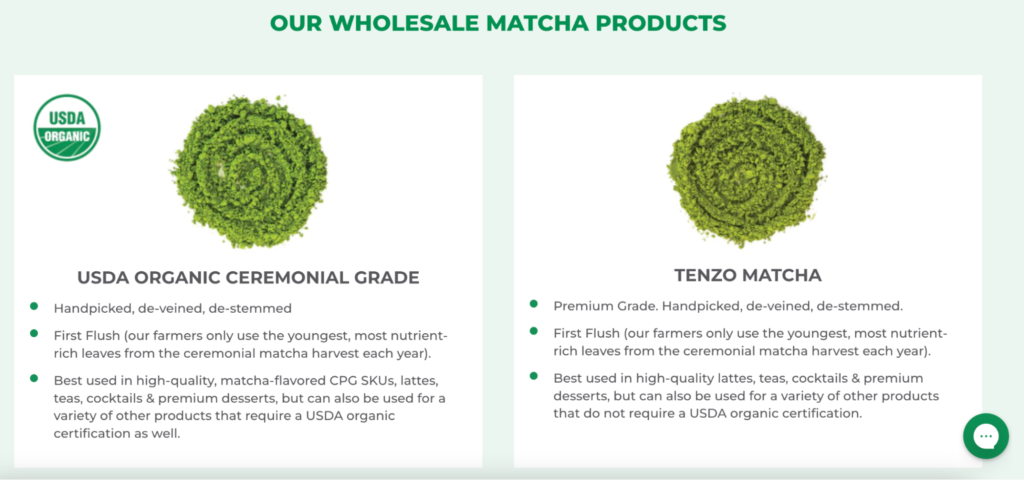
At that point, matcha was still a fairly new addition to cafes, so there was a gap that their product was able to fill for those who opted for an alternative to coffee. Early adopters of the product liked what Tenzo was selling, and soon selling direct-to-consumer became a bigger focus for the business.
Of course, early March 2020 brought on a new challenge to businesses everywhere with the onslaught of consumer behaviour changes during the pandemic. Cafes were closing and Tenzo Tea’s wholesale business was 10 times larger than their DTC business. They began transitioning to more of a DTC focus and launched subscriptions.
It’s been a few years since then, and Steve has gleaned a lot of knowledge through all the changes. One of the key pieces of wisdom he had to share: the power of data.
How to use data to grow your business
Start off by asking the right questions
Steve empowers other founders to create a system for data that works and then make decisions afterwards—but first, it’s important to ask the right questions. Exploring what data you want and understanding why you want it is key to improving on key metrics, like increasing retention and reducing customer acquisition cost (CAC). Steve recommends starting by determining your margin and payback period, as well as if you’re going to be profitable on first purchase—plus any other factors that are important to your business.
Build a custom dashboard & use optimal binning
After knowing what data you want to track, Steve recommends building out a custom dashboard that funnels all the information you want into one source of truth. This makes it easy to access the data and analyze trends from multiple channels, like SMS and social media.
“We built out a custom dashboard that piped in everything in the ecommerce engine. So that was all of the Klaviyo flows, all the Shopify data, all the Recharge data, the SMS data, the reviews data, Google analytics, all of our media spends, TikTok, Facebook, Pinterest, Snapchat—everything is piping into this database.”
–Steve O’Dell, Co-Founder and CEO of Tenzo Tea
Steve talks about how Tenzo relied on an analysis method called optimal binning where they separated data about their highest quality customers into “bins” to identify what sort of decisions they made during their relationship with the brand.
This allowed Tenzo to see patterns that led to optimal results, such as the fact that customers with a higher LTV were upsold specific products, or that they had their order shipped in six days or less.
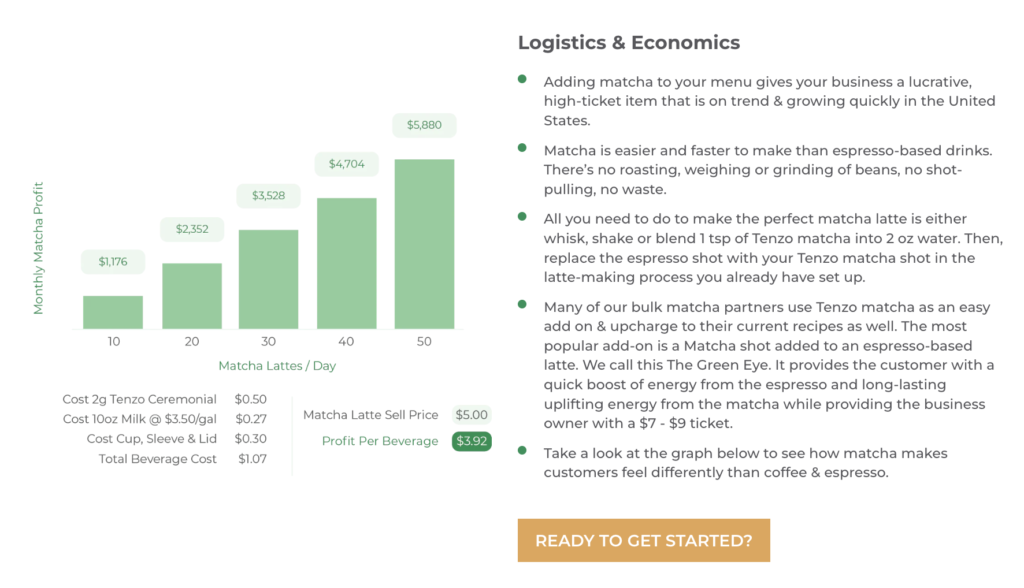
Optimize your business based on the data
With the data they received through their analyses, Tenzo was able to make specific business decisions, like improving shipping options to improve retention. This left them with more room to spend on paid ads. By increasing retention, they were able to balance the rising costs of customer acquisition and build a strong, loyal customer base—all of which earned them a competitive advantage in the DTC world.
“Our retention numbers grew a lot, which meant that we could spend more money on paid ads. And essentially, you can outbid all of your competitors if you can spend more money on the ads.”
–Steve O’Dell, Co-Founder and CEO of Tenzo Tea
Utilize A/B testing
Personalization and improving the customer experience has been a growing trend with the rise of the DTC movement. This isn’t possible, though, without data to identify what exactly causes customers to buy more and cancel less. Tenzo Tea experimented with A/B testing on everything from the kind of frother included in their trial kits to the aesthetic of their packaging and saw huge improvements in retention.
Through data and subscriptions, Tenzo developed a strong customer base and solidified their retention strategy. The next chapter of their story goes deeper into how they’ve cultivated a sense of community among their customers—and how they use it to further enhance their growth.
Connecting through community & user-generated content
“The magic happens in a community when the members get to meet each other and know each other [as they] learn about the products.”
–Steve O’Dell, Co-Founder and CEO of Tenzo Tea
Tenzo Tea has built up their community across many different channels, like their private Facebook group and growing TikTok account. With a well-established customer base, they were able to lean on these communities to engage their subscribers and make them feel connected with the brand on a personal level.
These outlets also allow customers to connect with each other through their shared interest in health and all things matcha, encapsulating the magic of social media and its ability to bring strangers together from all parts of the world.
User-generated content to generate organic traffic & build trust
On the topic of social media, there is certainly a shift happening in ecommerce. While Instagram was once the main channel for brands to market to customers, it has become somewhat of a “visual billboard,” as Steve describes.
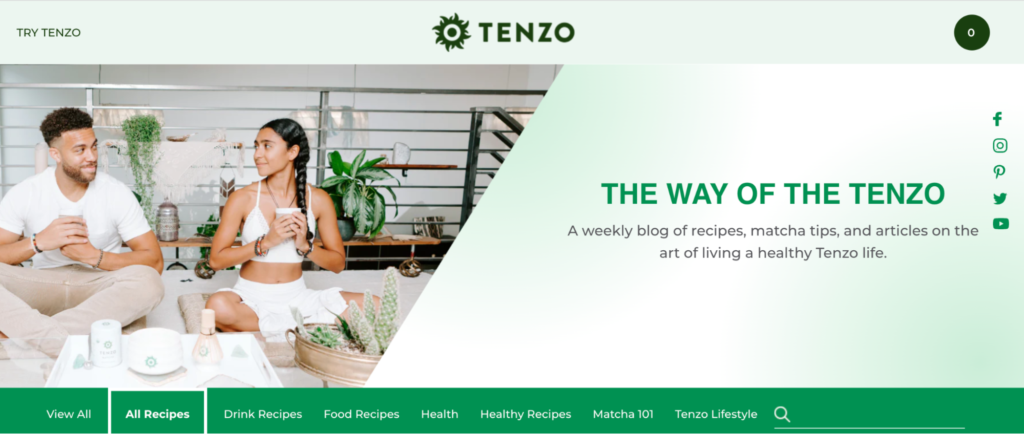
Highly produced videos and content are simply not performing as well in recent years in favour of more authentic and raw content. Consumers are now looking toward more unfiltered and relatable content to base their purchasing decisions on, and Tenzo Tea is all for it. User-generated content (UGC) is picking up momentum, and Tenzo has seen the greatest success with user-generated recipe videos and educational content.
“If you watch a [user-generated] video, it’s very relatable, believable, and those types of things really build trust in the way that a highly produced video or image doesn’t.”
–Steve O’Dell, Co-Founder and CEO of Tenzo Tea
There’s matcha more to learn
Perhaps the thing we really learned here was that we could all be the kind of people who like numbers, or at least use them to our advantage. And, that data and community-building go hand-in-hand in improving retention and boosting brand loyalty and trust.
The one thing I’ll personally take away, though: A nice cup of matcha will probably make you feel better than five cups of cold brew, but destiny has a funny way of showing up.
Check out the full podcast with Steve, as well as conversations with other industry experts, on our Hit Subscribe podcast.
Sources
[1] How Tenzo Tea optimizes with data (Hit Subscribe podcast)
[2] What is Optimal Binning and how is it done? (IBM support page)
[3] CAC (customer acquisition cost) (Recharge ecommerce glossary)
